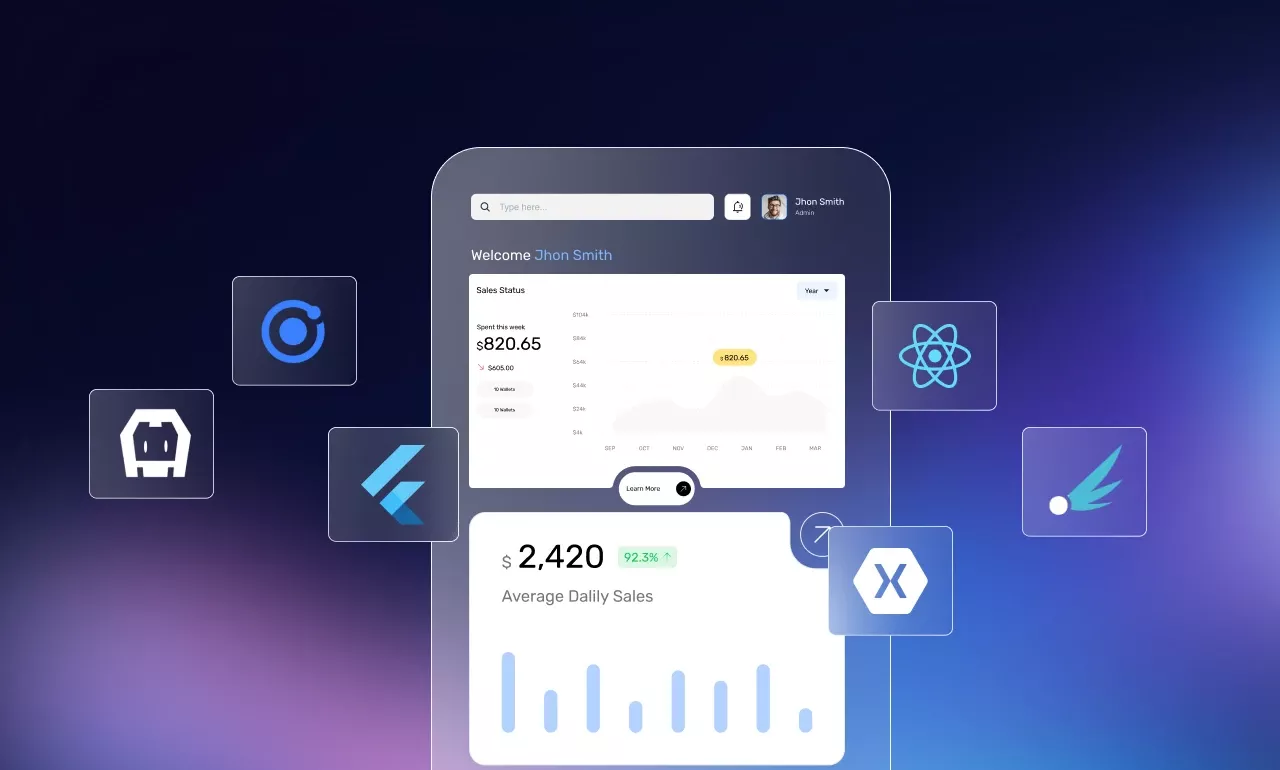Top 9 Real Estate Marketing Trends to Enhance Sales in 2025
Master SEO Benchmarks for Top Rankings on Search Engines
SEO’s significance is widely recognized, but what often goes overlooked is the value of SEO benchmarks in evaluating a website's performance.
Benchmarks are essential for understanding where your website currently stands and tracking its progress over time. By comparing your site's SEO metrics to industry standards, you gain critical insights into which strategies are working and where they need improvements.
This data-driven approach helps pinpoint which pages and strategies are driving traffic, allowing you to focus on what works and optimize or eliminate content that doesn’t contribute to your goals.
Tracking these metrics ensures you’re investing in the tactics that drive the best results for your business.
SEO Benchmarking: Why Does It Matter?
SEO benchmarks are key metrics, also referred to as Key Performance Indicators (KPIs), used to measure the impact of a website's SEO efforts. These indicators allow businesses to evaluate their SEO performance based on specific criteria, such as organic traffic or keyword rankings.
SEO benchmarking helps set clear and realistic goals and highlight areas that need improvement. Without these benchmarks, it’s difficult to determine if the SEO strategy and efforts are delivering the results you aim for or falling short.
Top 7 SEO Benchmarks to Use To Drive SEO Success
Tracking the right KPIs is vital for evaluating SEO performance. While individual websites may have unique goals, some benchmarks are fundamental across the board.
Here are seven critical SEO benchmarks and practical ways to enhance them.
Organic Search Traffic
Organic search traffic serves as a foundational KPI for SEO measurement. Conduct monthly reviews through Google Analytics to track performance over time. The Performance report in Google Search Console offers essential data on impressions and clicks.
When establishing benchmarks, it's best to use data from the most recent month. Avoid relying on older metrics, as the objective should be to consistently surpass your latest performance indicators. You can analyze the different sources from which your organic traffic is coming.
Boosting organic traffic demands attention to critical SEO practices. Addressing these areas consistently can improve performance over time.
- Optimize for keywords that align with audience needs and intent.
- Create informative and high-quality content that addresses user questions effectively.
- Refine technical SEO to improve speed, security, and site structure.
- Strengthen backlinks to build credibility with search engines.
- Track and review traffic data to identify areas for improvement.
Keyword Rankings
Keywords are the pillars of your SEO campaign. Keyword rankings reflect how well your website appears in search engine result pages (SERPs) for specific terms. For example, if you manage an educational institute in Chicago, you’d aim to rank for searches like “top educational institute in Chicago” or “best learning center in Chicago.”
Keyword benchmarking evaluates how your target keywords perform, helping identify strengths and where you stand against competitors.
SEO tools allow you to track keyword rankings, providing insights into which terms perform well in search results and which require optimization. This helps identify opportunities to improve visibility and drive better performance on SERPs.
Keyword difficulty (KD) is another metric to take into consideration in this benchmark. It measures how challenging it is to rank in the top 10 search results for a specific keyword.
KD, plotted on a scale from 0 to 100, helps identify which keywords are easier to rank for. This way, you can focus on achievable targets while gradually aiming for more competitive keywords over time.
Click-through Rate
Improving click-through rate (CTR) is one of the easiest ways to boost organic traffic. CTR measures the percentage of users who see your site in search results and choose to click.
Monitoring CTR provides insights into how well your site performs in SERPs, allowing you to draw more traffic by enhancing visibility and appeal.
A low CTR can indicate issues with title tags and meta descriptions. These elements directly influence user behavior in search results. Updating them can drive more clicks without altering rankings.
Bounce Rate
The bounce rate shows how many visitors leave without interacting further with your site. For example, if a user views one page and exits, it counts toward this metric.
Tracking bounce rates helps identify how well your content holds visitor attention and addresses weak points that enhance user engagement. Google Analytics 4 (GA4) is a tool that provides you with detailed bounce rate data by pages and sources.
Comparing your bounce rate with competitors provides valuable insights into industry benchmarks and highlights how your site performs relative to others. This analysis can reveal areas where your website excels or falls behind, guiding improvements to enhance user engagement and retention.
User Experience
User experience in SEO benchmarks measures how smoothly users navigate and interact with a website, shaping SEO performance through engagement and satisfaction. Strong UX can drive better search engine outcomes.
The two most important elements of user experience are:
- Engaged Sessions - In GA4, engaged sessions show user activity with the website, such as page views or if any specific actions were taken. Benchmarking these interactions highlights user interest and engagement, allowing SEO experts to assess the quality of the user experience and identify areas for improvement.
- Average Engagement Time - This highlights how long visitors stay engaged with content. Higher engagement signals valuable content and can positively influence SEO rankings.
Conversion Rate
The conversion rate measures the percentage of visitors who complete key actions on your website, such as making a purchase, signing up, or submitting a form. It reflects how effectively your site drives user actions.
For instance, if 100 users visit your site and 5 make a purchase, the conversion rate is 5%. Google Analytics 4 can track conversions by marking relevant user interactions as key events. Low conversion rates may indicate issues with site design, user experience, or audience targeting.
Domain Authority Score
Domain Authority Score gauges a website’s strength through backlink quality, content relevance, and technical performance.
Monitoring this score offers insights into site authority and trust signals. While it can reflect overall site health, search engines do not officially account for third-party authority metrics.
A rising Domain Rating (DR) reflects growth in the strength and quality of your backlink profile. Tracking and benchmarking DR is a standard practice, often used to demonstrate progress to clients who may not have deep SEO knowledge.
Driving Results with SEO Benchmarks
SEO is ever-changing, demanding attention to detail and adaptability. From mobile optimization to high-quality content and site structure, success lies in balancing multiple elements of SEO.
By aligning with search engines’ goal of delivering the best results, your site can consistently improve its visibility. With SEO benchmarking in place, take the next steps toward boosting your site’s performance.
Regularly reviewing these metrics will help shape stronger marketing campaigns and identify areas for growth. SEO thrives on consistent evaluation and adjustment, and your SEO benchmarks offer the insights needed to sustain long-term success.
Email us or Talk to us at +91-98367-81929 or Simply Contact Us through the website.
Let's Connect









